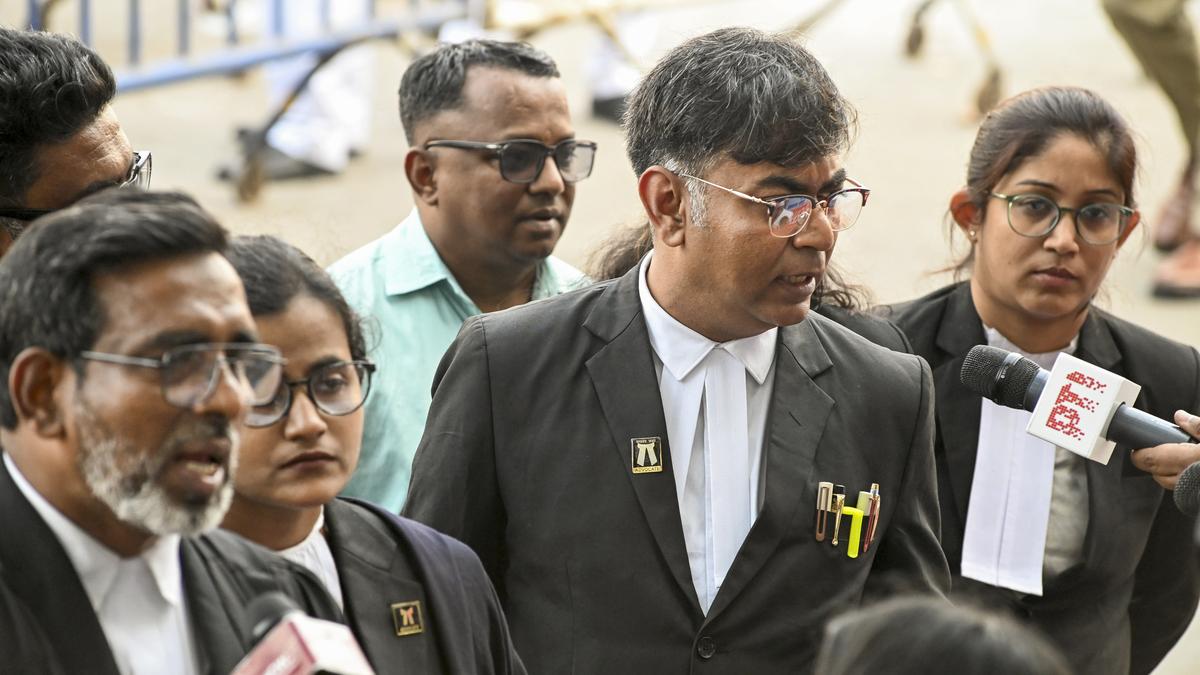
Judge's Decision in Doctor's Rape and Murder Case Ignites Firestorm
In a shocking turn of events that has sent ripples through India, a judge's decision to spare the death penalty for a man convicted of the rape and murder of a postgraduate doctor has sparked a national debate. This case, which involved the brutal killing of a young doctor at R.G. Kar Medical College and Hospital, has exposed a deep societal rift, pitting public outrage against the principles of justice and legal procedure. But was the judge right to opt for life imprisonment instead of capital punishment? Let's dive into the details of this incredibly complex case and explore the crucial questions it raises about the justice system in India.
The Case That Shocked a Nation: Rape, Murder, and a Life Sentence
The horrific details surrounding the rape and murder of the postgraduate doctor at R.G. Kar Medical College and Hospital are difficult to process. This brutal crime shocked the conscience of the nation and understandably sparked immediate calls for the harshest possible punishment for the perpetrator, Sanjay Roy. The case resonated with a public craving for immediate justice and swift retribution. This desire for capital punishment—a 'life for a life' as some put it—was intensified by public protests, the victim’s grieving family's plea for death, and even the stance of political leaders. Yet the court in its wisdom chose a different path, which is why this case is so significant in the discussions of law and jurisprudence in modern society.
The Judge's Reasoning: Beyond the Eye for an Eye
Judge Anirban Das, the presiding judge in the case, handed down a life imprisonment sentence. His decision was based on a conviction that our pursuit of justice needs to move beyond simple revenge or primitive instincts such as "an eye for an eye" and that this mindset is especially vital for societies that want to be thought of as truly modern. His assertion emphasized that our ability to rehabilitate, reform, and heal individuals is far more aligned with achieving a sophisticated society. His sentencing emphasized reforming the perpetrator as being critical for modern justice. The judge underscored that a society’s maturity is gauged not by the vengefulness of its actions, but by the strength of its ability to correct and prevent future offenses.
Navigating Public Sentiment vs. Judicial Impartiality
This case raises profound questions about the balance between public sentiment and the rule of law. The massive public outrage and significant public pressure, fueled by emotional responses to the brutality of the crime, made the situation far more complex. The emotional nature of the circumstances undoubtedly added to the difficulties of the trial, demanding even higher standards for maintaining judicial objectivity. High-profile figures such as the Chief Minister and Leader of the Opposition added their voices to the calls for the death penalty, further emphasizing the intense pressure that the court had to overcome.
The Court's Defense of Impartiality
The court strongly maintained that judicial rulings should stem from objective fact and not emotional public sentiment or political influences. In delivering its judgement, it defended its decision of choosing not to bow to pressures to pass a harsher verdict and underlined its commitment to using the process of evidence-based decision-making for a decision with lasting implications, without any external influence clouding its judgement. This decision highlights that the integrity of the legal system is based on adhering strictly to evidentiary fact and the process, instead of letting emotions and pressures lead the decision-making.
Systemic Failures and Police Negligence: The Larger Picture
The court's judgment also highlighted severe shortcomings in the handling of the initial investigation, further demonstrating this is a more comprehensive issue that is critical to analyze for the future of India's jurisprudence. The judgment drew stark attention to the blatant negligence on the part of the Tala police station, which is further troubling in its potential implication for justice.
Exposing Negligence in the Investigative Process
Judge Das pointed to serious inconsistencies and delays in recording information by the investigating authorities in its 172-page judgment. Specifically, the court highlighted the behavior of the sub-inspector from Tala police station who delayed adding an entry into the police diary by many hours. Attempts to hide evidence by R.G. Kar hospital authorities in order to conceal the truth was strongly criticized. This revelation underscores systemic problems with investigations, pointing to issues that need urgent improvement. This points toward deep-seated problems requiring serious institutional reforms in India.
Take Away Points
This deeply complex case involving the rape and murder of a doctor serves as a stark reminder of the challenges faced by the Indian justice system. It underscores the importance of impartiality and the dangers of being swayed by public sentiment. While the judge’s decision has prompted heated discussion and raised some serious questions, the handling of the case brings to light larger institutional failures needing to be seriously analyzed and amended to increase India’s commitment to serving justice.








